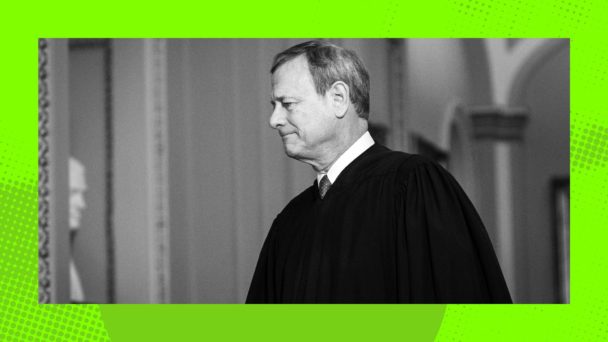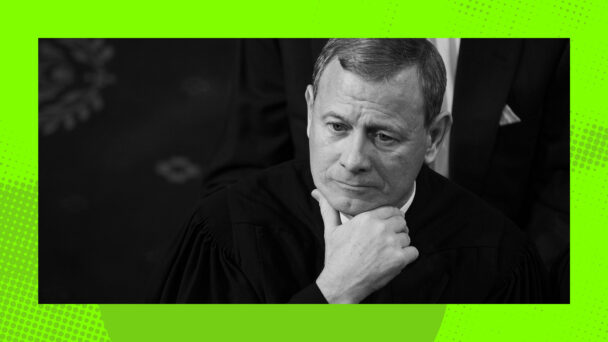This article was published in partnership with Slate.
During their summer vacations, Ketanji Brown Jackson and Neil Gorsuch did what all Supreme Court justices do every few years when the Court is in recess: go on tour to promote a book. Jackson recently published Lovely One, her entry into the canon of de rigueur Supreme Court memoirs. Gorsuch cranked out his version of this book in 2022, forcing him to come up with new material this time around: His latest, Over Ruled: The Human Toll of Too Much Law, details his critique of the administrative state, which, in a fun coincidence, he has spent the last few years cheerfully gutting.
Supreme Court justices love writing books, and not only because of their excessive confidence that people are interested in what they have to say. Jackson’s deal for Lovely One is reportedly worth $3 million; for a forthcoming book on (I am not making this up) “how judges are not supposed to bring their personal feelings into how they rule,” Amy Coney Barrett inked a deal worth $2 million. Although the justices, whose salaries are close to $300,000, must include book earnings in their financial disclosures, there is no cap on how much they can make. One of the privileges of ascending to the top of the federal judiciary is the right to pocket as much as a publisher will pay to print a glossy hardback with your face on the front.
I would not characterize as “ideal” a system in which public servants who take up a lucrative side hustle can outearn their salaries by an order of magnitude. At the same time, in recent Supreme Court scandal-adjusted terms, I do not find the judicial memoir industrial complex to be all that alarming; there are simply too many unreported luxury vacations and coup-curious flags flying over the justices’ homes to get all worked up about the occasional vanity book project. The more troubling takeaway from Jackson’s and Gorsuch’s respective summer schedules is what they reveal about the Court right now, as a six-justice Republican supermajority prepares for another term of rewriting American law as its members see fit.
To promote Lovely One, Jackson stuck with mainstream outlets—the kinds of places where a law student’s non-lawyer parents might learn about the book and buy them a copy as a Christmas gift. She appeared on The View, and CBS Mornings, and The Today Show. She went on NPR’s Fresh Air and PBS Newshour, and sat for interviews with The New York Times and The Washington Post. During an appearance on The Late Show, when Stephen Colbert asked, apropos of nothing, if she has a favorite novelty flag to display at her home, Jackson laughed and offered a polite “no comment.”
Gorsuch’s tour was different. It included stops on Megyn Kelly’s satellite radio show, Hugh Hewitt’s podcast, and Ben Shapiro’s weekly fireside chat. (During Gorsuch’s appearance, Shapiro helpfully read only one ad for a tax resolution firm promising to help delinquent viewers quickly and easily settle their outstanding debts with the Internal Revenue Service). Gorsuch spoke at the presidential libraries of Richard Nixon and Ronald Reagan, and guested on Firing Line, a PBS opinion show hosted by the conservative commentator Margaret Hoover. He spoke to Kyle Peterson of the staunchly conservative Wall Street Journal editorial board, and to New York Times opinion columnist David French, previously of National Review and The Dispatch.
And of course, Gorusch appeared on not one, not two, but three different Fox News titles over three days: Fox & Friends, America Reports, and Fox News Sunday. That last appearance earned Gorsuch a few headlines thanks to the warning he included for President Joe Biden and Democratic lawmakers, in the aftermath of Biden’s announcement of his support for Supreme Court term limits. “Be careful,” he said, explaining that the independent judiciary exists for “when the government’s coming after you.” In those circumstances, he continued, “don’t you want a ferociously independent judge and a jury of your peers to make those decisions?”
Cip via YouTube
This is not the publicity tour you assemble if your goals are to persuade viewers of your noble, high-minded objectivity, or to restore the reputation of a historically unpopular institution, or to reassure the millions of Americans who watch their rights disappear each June that what’s going on at the Court is apolitical legal analysis, not policymaking dressed up in the trappings of legal process. It is the publicity tour you assemble if you are producing content intended for Republicans, and want to invite them to share a little victory lap with you, and do not think your critics are worthy of the time it would take to acknowledge their existence.
Back in 2017, Gorsuch addressed concerns about his ultraconservative judicial philosophy by explaining that judges “leave all the other stuff at home,” and make decisions “based on the facts and the law” only. This rhetoric has always been the stuff of Schoolhouse Rock fairytales, but Gorsuch and the conservatives are not even pretending to believe it anymore. They understand that their audience is composed of fellow conservatives, and are not contemplating the possibility of appealing to anyone else.
There is a long tradition of Supreme Court justices promising to check their priors at the courthouse door. (On The View, Jackson explained that she “separates out” her personal views “in a very intentional way” when deciding cases, to ensure that she is “applying the law.”) All justices, regardless of ideology, have some version of this talking point prepared for their public appearances, because what else are they supposed to say, really? The Court’s legitimacy depends on some critical mass of people seeing them as something other than “partisan hacks” (in Barrett’s words), or “Obama judges or Trump judges” (Chief Justice John Roberts), or “politicians in robes” (retired Justice Stephen Breyer). All of its members have an incentive to burnish that reputation, even if they are not in the majority as much as they might like.
The difference here is that Jackson’s intended audience—which, again, includes the vast majority of Americans who do not keep a graven image of Antonin Scalia in their homes—does not take assertions like this seriously anymore. On The Late Show, when Jackson recalled learning as a law clerk to set aside her preferred outcomes when writing opinions, a deadpan Colbert asked, “Are you confident that all the justices share that idea?”
The studio audience was cracking up even before Jackson, clearly flustered, could begin to make the case. “Yes, I am!” she said, with all the conviction of a parent when asked if they’re “looking forward” to hosting their toddler’s pirate-themed bouncy house birthday party next week. Colbert saved her from the awkwardness of the moment by mock-scolding the audience for laughing. “I don’t know why that’s a joke to you people,” he said. “It’s a simple question.”
Clip via YouTube
The Late Show audience’s reaction is a pretty good distillation of how normal people feel about the Court right now. A majority of Americans view the Court’s decisions as motivated “mainly by politics,” and the institution’s approval rating is now as low as it’s been in 40 years.
The problem is that the conservative justices do not care what normal people think right now, because they surround themselves with sycophants whose role is to congratulate them for doing such a good job, and urge them to keep it up. Samuel Alito’s relationship with the Wall Street Journal editorial board is now so cozy that he occasionally writes under his own byline to defend himself against his critics. Clarence Thomas spends each summer getting pampered by a different right-wing billionaire who hopes the Court will one day overturn the Fair Labor Standards Act. Roberts, whose inane judges-as-umpires metaphor from his confirmation hearings has helped poison Supreme Court discourse ever since, spent the past year furiously whipping votes for Donald Trump, ensuring that his Court would not stand in the way of a right-wing demagogue’s quest to win the White House and end America’s experiment with democracy shortly thereafter.
A Supreme Court justice who treats leering grifters like Megyn Kelly and Ben Shapiro as serious people is the inevitable consequence of this trend: The six justices who control the Court that will convene for oral argument on Monday understand better than ever who their constituents are, and how to make them happy. Everyone else is just making noise, and easy to tune out.








